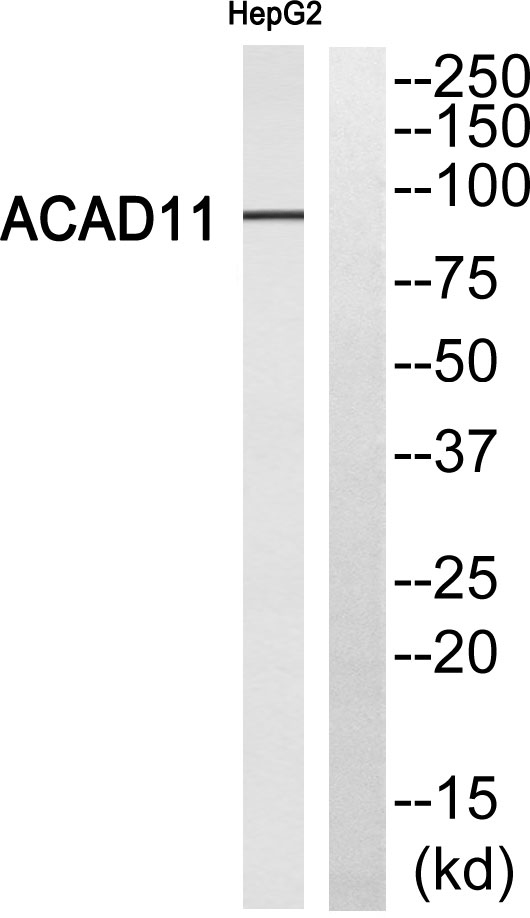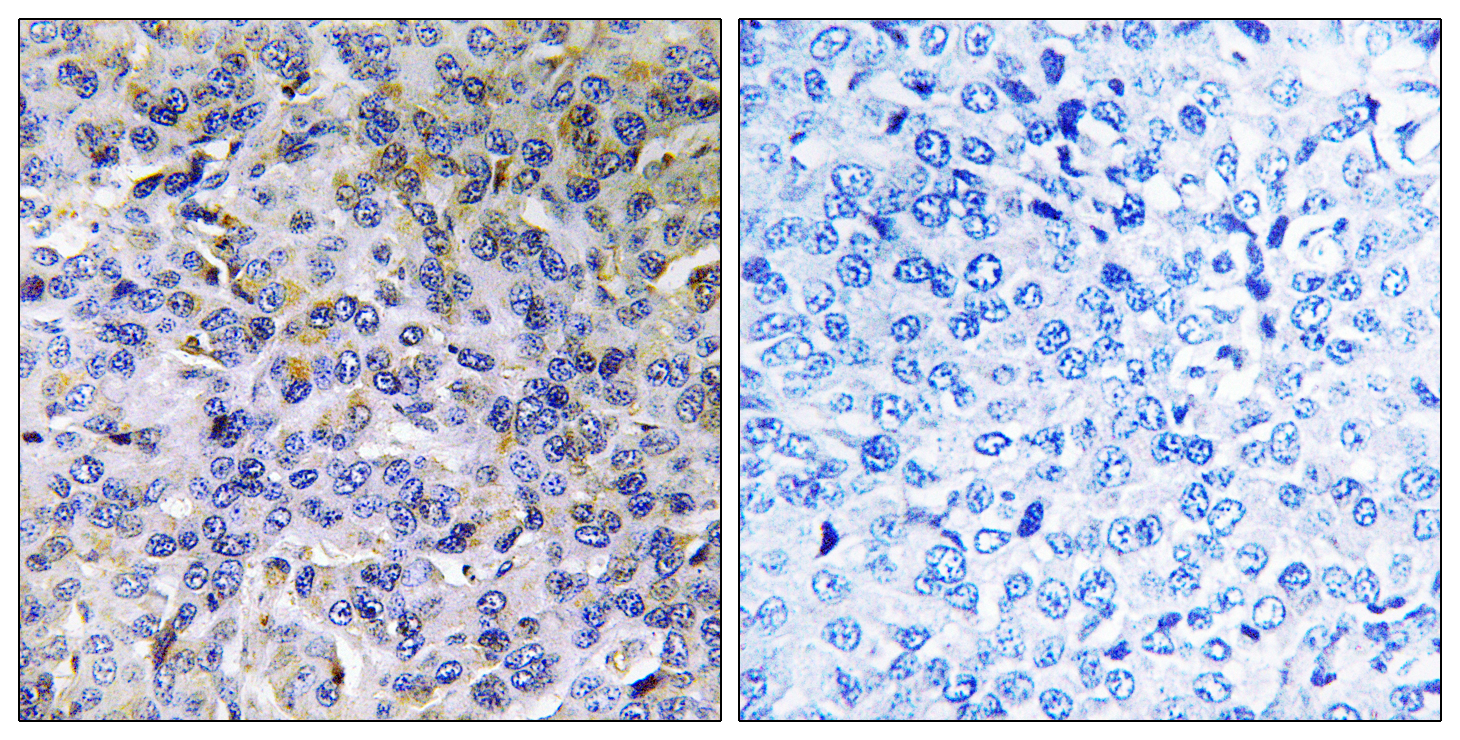ACAD-11 Polyclonal Antibody
- Catalog No.:YT0069
- Applications:WB;IHC;IF;ELISA
- Reactivity:Human;Rat;Mouse;
- Target:
- ACAD-11
- Gene Name:
- ACAD11
- Protein Name:
- Acyl-CoA dehydrogenase family member 11
- Human Gene Id:
- 84129
- Human Swiss Prot No:
- Q709F0
- Mouse Swiss Prot No:
- Q80XL6
- Immunogen:
- The antiserum was produced against synthesized peptide derived from human ACAD11. AA range:381-430
- Specificity:
- ACAD-11 Polyclonal Antibody detects endogenous levels of ACAD-11 protein.
- Formulation:
- Liquid in PBS containing 50% glycerol, 0.5% BSA and 0.02% sodium azide.
- Source:
- Polyclonal, Rabbit,IgG
- Dilution:
- WB 1:500 - 1:2000. IHC 1:100 - 1:300. ELISA: 1:20000.. IF 1:50-200
- Purification:
- The antibody was affinity-purified from rabbit antiserum by affinity-chromatography using epitope-specific immunogen.
- Concentration:
- 1 mg/ml
- Storage Stability:
- -15°C to -25°C/1 year(Do not lower than -25°C)
- Other Name:
- ACAD11;Acyl-CoA dehydrogenase family member 11;ACAD-11
- Observed Band(KD):
- 87kD
- Background:
- acyl-CoA dehydrogenase family member 11(ACAD11) Homo sapiens This gene encodes an acyl-CoA dehydrogenase enzyme with a preference for carbon chain lengths between 20 and 26. Naturally occurring read-through transcription occurs between the upstream gene NPHP3 (nephronophthisis 3 (adolescent)) and this gene. [provided by RefSeq, Aug 2015],
- Function:
- alternative products:Additional isoforms seem to exist,disease:Defects in NPHP3 are a cause of renal-hepatic-pancreatic dysplasia (RHPD) [MIM:208540]. RHPD is an autosomal recessive disorder with variable expression, and patients surviving the neonatal period progress to renal and hepatic failure which can be treated successfully with combined liver-kidney transplantation.,disease:Defects in NPHP3 are the cause of nephronophthisis type 3 (NPHP3) [MIM:604387]; also known as adolescent nephronophthisis. NPHP3 is a autosomal recessive disorder resulting in end-stage renal disease. It is characterized by polyuria, polydipsia, anemia. Onset of terminal renal failure occurr significantly later (median age, 19 years) than in juvenile nephronophthisis. Renal pathology is characterized by alterations of tubular basement membranes, tubular atrophy and dilatation, sclerosing tubulointerstitial neph
- Subcellular Location:
- Peroxisome . Mitochondrion membrane . Has been detected associated with mitochondrial membrane, but no matrix, in kidney and cerebellum, as well as in a neuroblastoma cell line, but not in skin fibroblasts, where it is observed in cytoplasmic vesicles (PubMed:21237683). No mitochondrial targeting signals could be predicted for any known isoform, including a putative isoform starting at Met-316. .
- Expression:
- Widely expressed with highest levels in brain followed by liver, heart and kidney.
- June 19-2018
- WESTERN IMMUNOBLOTTING PROTOCOL
- June 19-2018
- IMMUNOHISTOCHEMISTRY-PARAFFIN PROTOCOL
- June 19-2018
- IMMUNOFLUORESCENCE PROTOCOL
- September 08-2020
- FLOW-CYTOMEYRT-PROTOCOL
- May 20-2022
- Cell-Based ELISA│解您多样本WB检测之困扰
- July 13-2018
- CELL-BASED-ELISA-PROTOCOL-FOR-ACETYL-PROTEIN
- July 13-2018
- CELL-BASED-ELISA-PROTOCOL-FOR-PHOSPHO-PROTEIN
- July 13-2018
- Antibody-FAQs
- Products Images

- Western blot analysis of ACAD11 Antibody. The lane on the right is blocked with the ACAD11 peptide.

- Immunohistochemistryt analysis of paraffin-embedded human breast carcinoma, using ACAD11 Antibody. The lane on the right is blocked with the ACAD11 peptide.



